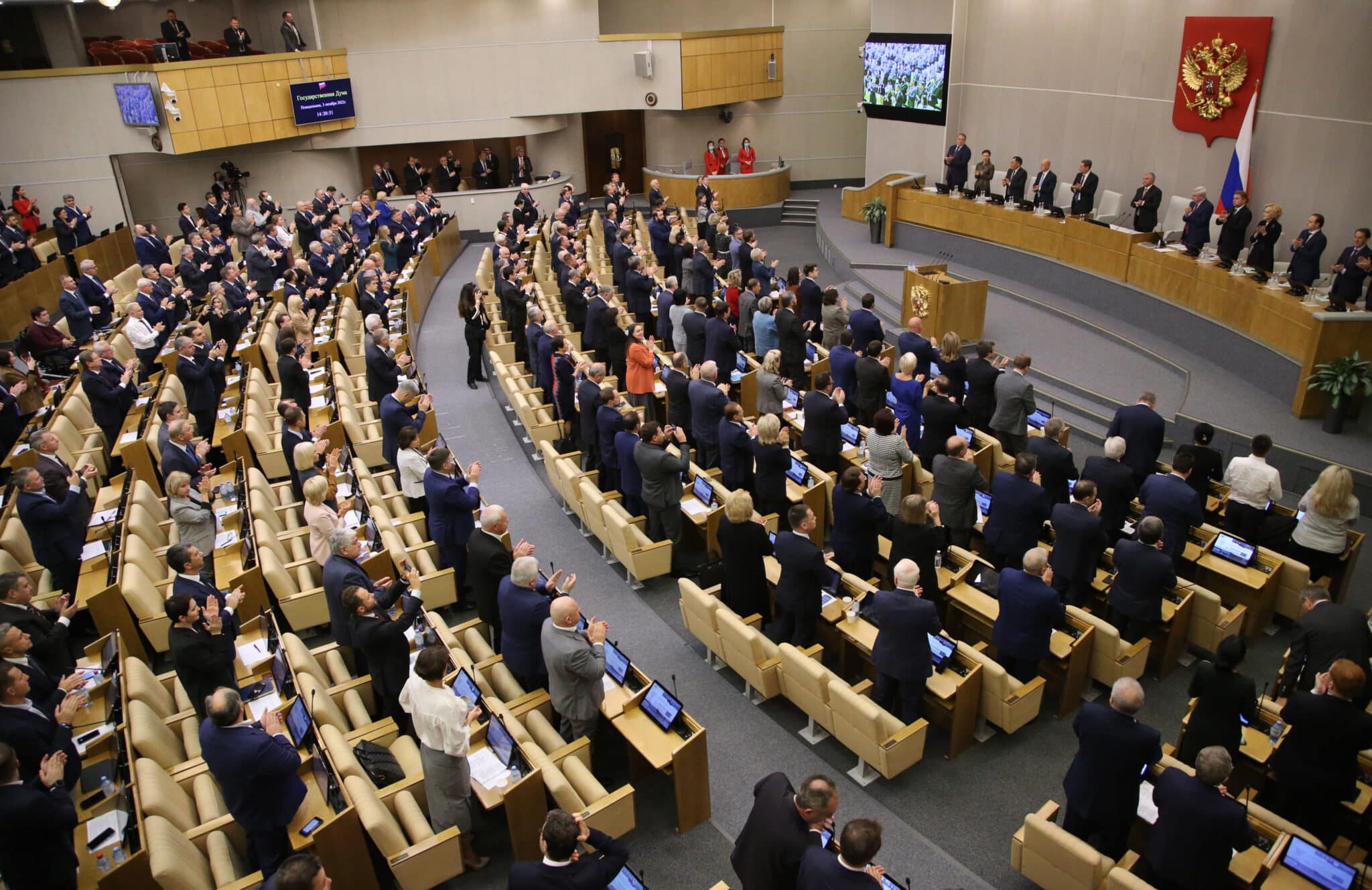Russia inches closer to expanding horrific ‘gay propaganda’ law

Vladimir Putin approved the “gay propaganda” law in 2013. (Getty)
Russian lawmakers are poised to expand the so-called “gay propaganda” law to cover adults.
Officials attended a State Duma session on Monday (17 October) to discuss approving amendments to the 2013 law, which prohibits the distribution of what the country considers “LGBTQ+ propaganda” to under-18s, under the punishment of fines or jail time.
The amendments would impose a ban on LGBTQ+ media for adults.
Supporters claimed that strengthening the law would help aid the nation in its war against Ukraine, while others said it was the start of a pushback against what they consider Western values.
State Duma information committee chairman Alexander Khinstein said that the widened law would help protect against a vaguely defined Western influence, adding that the “war is not only on the battlefield” but that it was also “in the smartphones of our children, in cartoons and films”.
“Our enemy really holds the propaganda of sodomy as the core of its influence,” he continued.

Russian State Duma deputies attend a meeting inside parliament. (Getty)
At Monday’s session others, including Duma speaker Vyacheslav Volodin, said the law would “protect” Russians, adding that it “is not to limit rights, but to protect them from propaganda”.
On the very same day, president Vladimir Putin ordered the government to assign 3.9 billion rubles per year to “patriotic” education programmes.
The Kremlin website explained that this includes “digital content and multimedia products aimed at the patriotic and spiritual education of children and youth.”
Gay propaganda law could outlaw classic Russian literature
According to the Russian Book Union, the amendments planned for the propaganda law could see classic literature outlawed in the country.
In an open letter to Khinshtein, the group expressed concerns that the law would ban various books, including Devils by Fyodor Dostoyevsky and The Storm by Alexander Ostrovsky.
Khinshtein reportedly told Kommersant that, while he hasn’t read the letter from the RKC, he is confident that the amendments would not infringe on classical literature.

